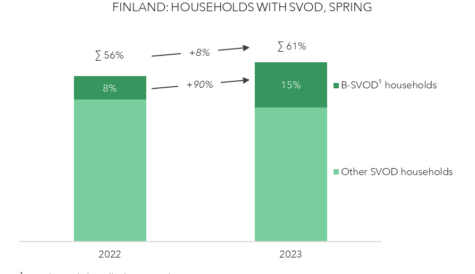
After more than 40 years of operation, DTVE is closing its doors and our website will no longer be updated daily. Thank you for all of your support.
Ofcom warns Competition Commission not to overstate Netflix impact on Sky
 UK media regulator Ofcom has urged the Competition Commission not to overestimate the impact of Netflix and Lovefilm on the pay TV market in the UK when considering BSkyB’s allegedly dominant position in the supply of pay TV movies.
UK media regulator Ofcom has urged the Competition Commission not to overestimate the impact of Netflix and Lovefilm on the pay TV market in the UK when considering BSkyB’s allegedly dominant position in the supply of pay TV movies.
Ofcom said on Friday that the market impact of the US online video-on-demand service and its Amazon-owned UK competitor should not be overestimated, following the competition regulator’s decision to look again at the pay TV movies market in the UK in the light of the launch of the new online services. The Commission had earlier provisionally concluded that BSkyB’s grip on the first subscription pay TV movies window needed to be addressed.
While viewing the launch of Netflix and Lovefilm as “positive market developments” and conceding that the ability of UK homes to access content from multiple services including the internet “may serve to reduce concerns about bottlenecks traditionally associated with TV platforms”, Ofcom maintained that the key factor was access to first-run Hollywood movies on a subscription basis.
“While Lovefilm and Netflix have movie rights from some major and non-major studios in the second subscription pay TV window (SSPTW), their rights to FSPTW [First Subscription Pay TV Window] movie content are dwarfed by those of Sky, which retains control of all FSPTW movie rights from the six major studios,” said Ofcom.
It said that Netflix and Lovefilm were essentially non-premium services that relied heavily on UK and US TV series and were sold at a relatively low subscription rate. “Rather than being substitutes for Sky Movies, these services appear to be designed to more closely resemble a general entertainment TV channel service,” said Ofcom.
Ofcom also pointed out that Sky’s recent Now TV internet-only initiative, widely seen as a response the launch of Netflix, was, in CEO Jeremy Darroch’s words, designed to “meet the needs and preferences of different customer segments more effectively”, rather than to provide an alternative to its premium offering. Sky’s negotiating power remained extremely strong, and Sky continued to control FSPTW rights to the six major studios.
“Lovefilm and Netflix clearly have ambitions in the pay TV retail market, but their ability to compete directly with Sky on a sustainable basis is not certain and critically dependent on access to compelling content which is currently controlled by Sky and likely to remain so. Therefore, it is unclear that they can be relied upon in the future to address the adverse effect on competition and the resulting detriment to consumers identified by the Competition Commission in its Provisional Findings,” concluded Ofcom.


